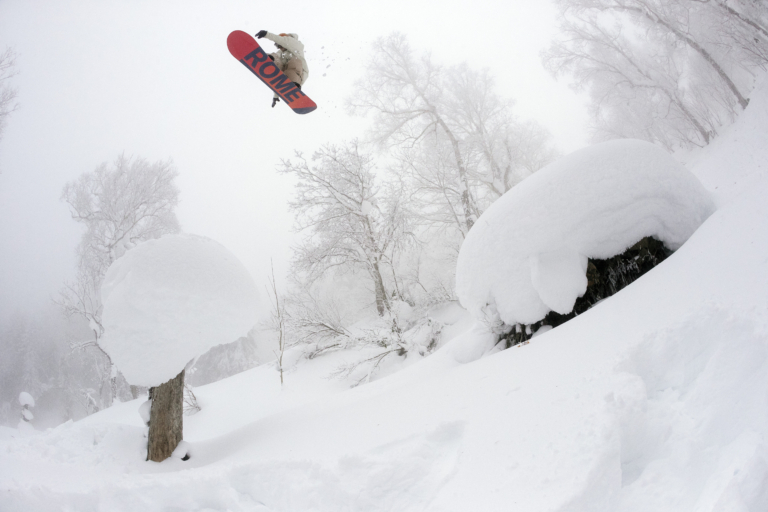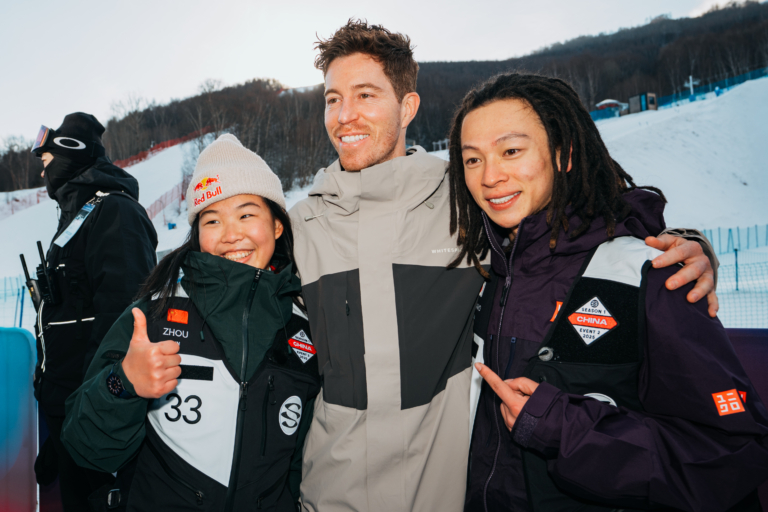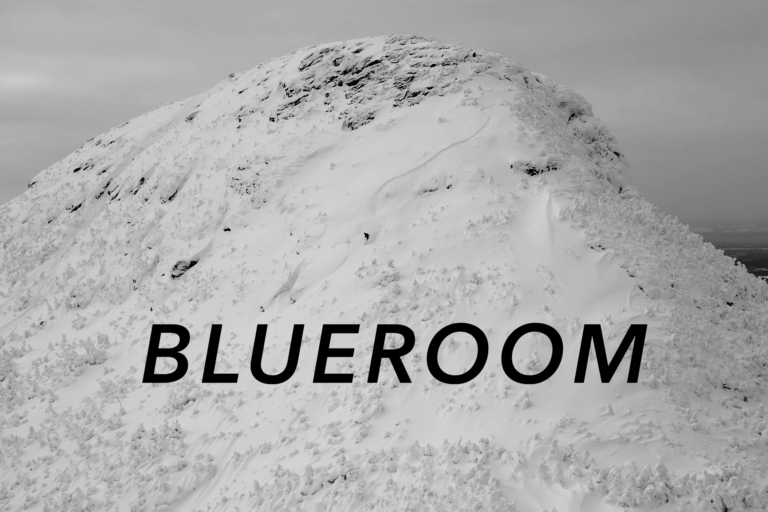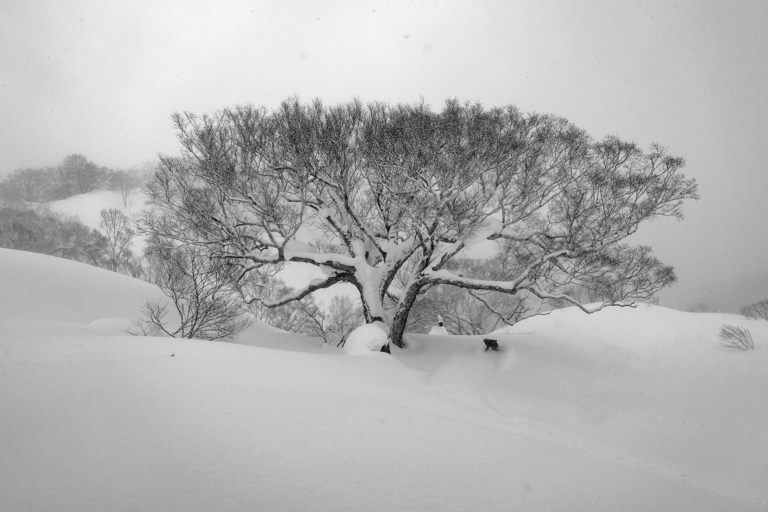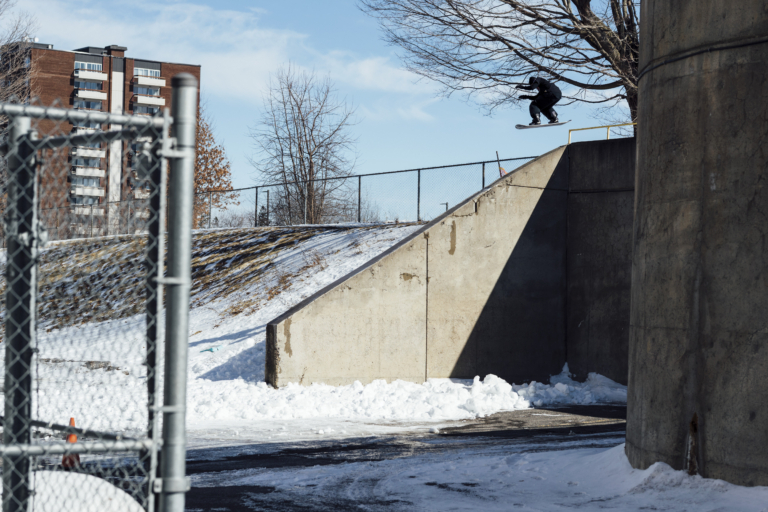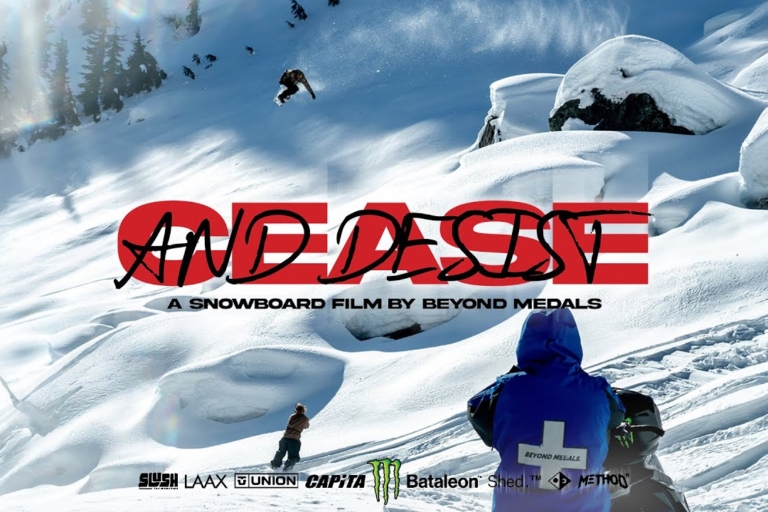Ben Hinkley, a two-time X Games Big Air silver medalist and Burton Snowboards pro from 1994-2002, was found dead in his home in Long Beach, California on Monday, March 7, after apparently dying in his sleep. He was 43 years old. The official cause of death statement has been deferred pending further investigation, according to the Los Angles County Coroners Office, but friends say he’d been complaining about severe headaches for several days before his death. A memorial service was be held Saturday March 12, at DI Studios, 1520 East Wardlow Road, in Long Beach.
 Ben Hinkley, always a great smile to share with those around him. 1973–2016. | Photo: Kurt Olesek
Ben Hinkley, always a great smile to share with those around him. 1973–2016. | Photo: Kurt Olesek
Hinkley will be remembered for pioneering some of the first double flip tricks — he landed a double frontflip at X Games San Diego in 1998, finishing second behind his roommate Kevin Jones’ frontside 900 and in front of his other roommate Jim Rippey’s backflip 360 “Rippey flip,” in what must be the only time one household swept an X Games podium — and as one of a very small handful of African-American pros in the history of snowboarding.
He will also forever be known as Lawn Dart. It’s common in snowboarding for tricks to be named after their creators. In the case of the lawn dart — the Superman air to late front flip that became Hinkley’s signature — the rider took on the name of the trick. The nickname stuck.
[videocaption]Ben Hinkley’s signature Lawn Dart, from the 1999 Winter X Games Snowboard Big Air[/videocaption]
“He’d do that trick like he’d been shot out of a cannon, with his arms at his sides, and he’d wait until the very last second to tuck into the flip, like a true showman,” recalls Sal Masekela, a longtime friend who was on the mic when Hinkley landed the trick off the Big Air ramp at X Games San Francisco in 1999. “He didn’t care about doing the tricks everyone else was doing. He just wanted to do weird, wild stuff. Some people dismissed him as a stunt man and not a snowboarder, but he was definitely the guy that was having all the fun.”
Hinkley had a background as a gymnast, and as bigger and bigger jumps came into play at snowboarding events in the late 90s, he found himself right in his element.
“The dude could do a running double front flip on the ground, and he could do a standing backflip in snowboard boots,” remembers Kurt Olesek, who was working as a Rocky Mountain regional rep with Burton Snowboards when Hinkley first moved from Lincoln, Nebraska to Winter Park, Colorado to chase the dream. Olesek helped him get his first sponsorship deal with Burton. “That was a no-brainer when you saw someone like Ben come along. His balance and air awareness were just incredible, and he was always so solid, just stomping. He was great fun to have on photo shoots because he always went for it. It was like you couldn’t build a big enough jump for this guy. And, even more inspiring: he was always happy.”
[juicebox gallery_id=”279″]
Hinkley was among the first to bring doubles to competition and video — he won another silver at X Games San Francisco 1999 with another double frontflip, and was featured in Warren Miller’s 50th anniversary film, Fifty, also in 1999 — foreshadowing the double corks and triple corks of today’s modern Big Air competition landscape. Now that some of the first quad tricks have been landed, riders like Billy Morgan, Max Parrot, and Marcus Kleveland are catching some of the same kinds of criticism first leveled at Hinkley back in the day.
“His double frontflip, that was a big deal,” says Masekela. “People gave him no love for it at all, like it was a gymnastic stunt and not snowboarding, but then look at what’s going on today! He was ahead of his time. He knew where it was going. To me he represents both the golden years of snowboarding and the birth of the action sports spectacle.”
For Masekela and other African-Americans in snowboarding and action sports, Hinkley also represented a rare shot of diversity in what is still an all-too-white sport. He sometimes showed up to events with “H.N.I.C.” scrawled on his snowboard, to help emphasize the point, and helped introduce some of his favorite hip-hop artists to a lot of his snowboarding friends.
“As one of the only other black snowboarders, we shared a lot of laughs at how wild the world could be,” recalls Keir Dillon. “It was never overtly racist, outright name-calling or anything like that, but you know, you’d be at some nice ski resort and see people grabbing their bag closer in your presence. That kind of thing. I imagine it was even harder for Ben because he was darker and taller and had more stature than me. But then, the beautiful thing of it was that in snowboarding we were mostly traveling with a tight-knit group of people with a common bond and lust for life, and the race thing became almost irrelevant. One of the things I always loved about snowboarding is that the world fades away, race and color fade away, and what you’re left with is just the pure joy of riding, which is why we all do what we do. Ben embodied that sheer joy more than anyone.”
“I remember just being stoked to meet another black snowboarder — at the time you probably could have counted us on one hand — and a black snowboarder who charged, no less,” Masekala says. “I think a lot of people thought he got special treatment because he was black, which I thought was stupid, and some of the core snowboarding people hated on him. Oh, how they hated on him. But the thing was, you could never hate on him to his face, because he was just a tornado of good vibes and love, and he didn’t care about any of that anyway. He’d show up for an event like, ‘Yo, I’m here to win, where do I sign up?’ I loved that about him.”
Hinkley’s biggest win came in 2001 at the Chevy Grand Prix Big Air at Breckenridge, a Vans Triple Crown event where he landed a Rippey flip in tribute to his best friend, who couldn’t make it to the contest.
“I praise God that He allowed me to be friends with Ben Hinkley and to have so many great years with him, including the five that we lived together, because it was definitely a blessing in my life,” Rippey says. “He was actually with me when I first met my wife, and he ended up being my Best Man at the wedding. He was just the most charismatic guy, the coolest cat, and the best friend anyone could ask for.”
[videocaption]Ben’s Looney Tunes-inspired Mountain Dew appearance.[/videocaption]
In 2003, before winding down his pro career, Hinkley brought the lawn dart to a Looney Tunes-inspired ad for Mountain Dew. And, laughing off the old “stunt man” criticism, he actually performed as a stunt double for Queen Latifah in a snowboarding scene for the 2006 film Last Holiday, earning a nomination for Best Specialty Stunt at the Tourus World Stunt Awards. At the time of his death he’d been working as a sports marketing representative for Popcornopolis, still snowboarding — and throwing lawn darts and wide-open layout backflips all over the place — every chance he got.
“I hope everyone out there riding in the terrain parks or the backcountry or in or contests or wherever they are this week will be sending lawn darts in memory of one of snowboarding’s most unique personalities,” Dillon says.
“That would make Ben smile down on all of us.”

